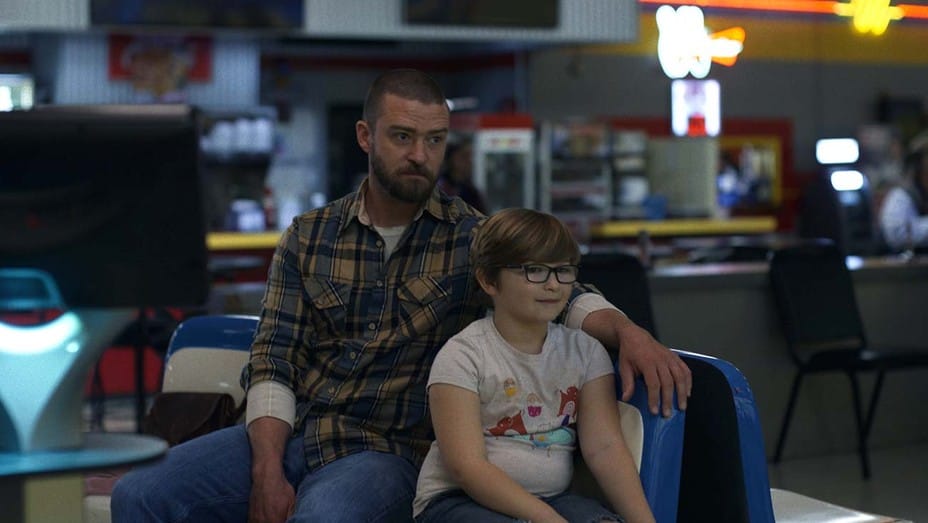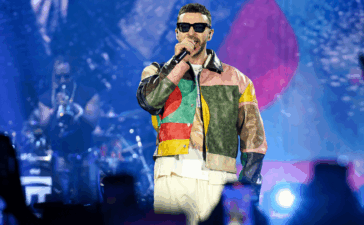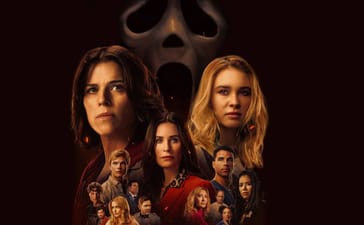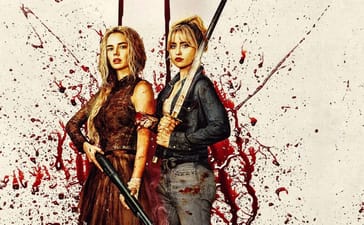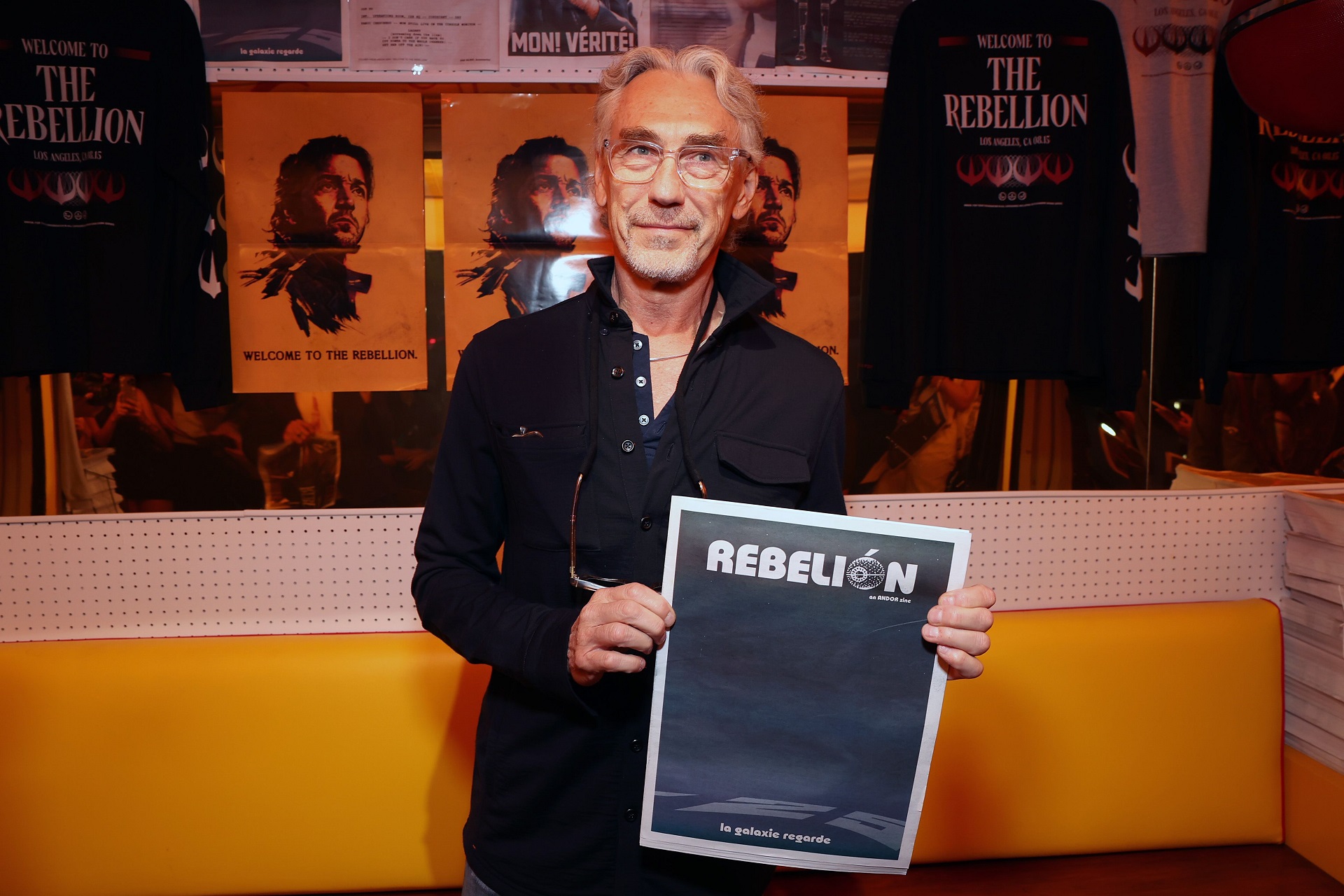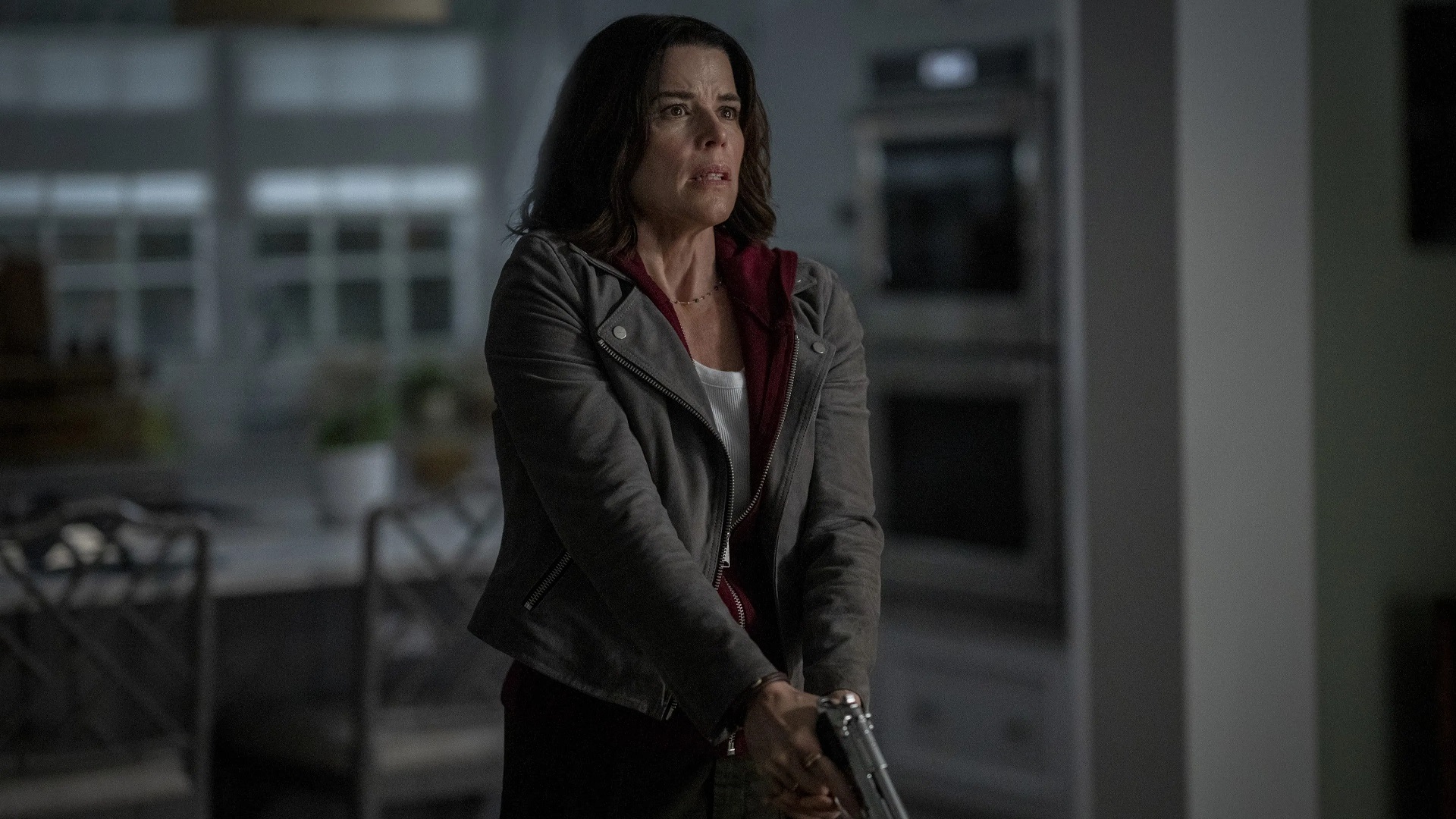He struck Oscar gold with 2009’s confronting The Cove and created one of the cultural moments of 2020 with Netflix’s Tiger King, but now prolific actor and filmmaker Fisher Stevens is returning to fiction with the affecting drama Palmer, now streaming on Apple TV+.
Palmer sees Justin Timberlake as the titular former football star (first name Eddie) fresh out of prison after a 12-year stint and looking to rebuild his life in his small Southern hometown. Unexpectedly, he finds himself the accidental guardian of seven-year-old Sam (newcomer Ryder Allen), who lives with his addict mother (Juno Temple) in a trailer in Palmer’s grandmother’s back yard. The effervescent Sam is decidedly feminine; he plays with dolls and is obsessed with princesses to the point of dressing up as one. Palmer, who knows how cruel the world can be to those perceived as different, finds himself thrust into the role of protector.
The tough guy/cute kid dynamic is a venerable one, but the script by Cheryl Guerriero and nuanced direction by Fisher Stevens ensures that, although the narrative model may be familiar, Palmer has an authenticity and emotional openness that’s rare. We caught up with Fisher to fire a few questions at him about his directorial process.
Let’s start at the start: this script has been kicking around since about 2016, as far as I can tell. When did it wash up on your shore and what was it that attracted you to Palmer as a project?
Well, I think it may have been kicking around even a little before because I read it in 2016. I love the script. I’d been trying to direct something that wasn’t a documentary, something fiction again, and I felt like I could use my skills as a documentarian with this movie because it was low budget and it just felt so raw and real. I love movies that feel like you’re in a real place with real people.
I really related to the role of Sam – my nephew, Max, basically was Sam at seven. I just thought it was so authentic. I also love stories about redemption and second chances in this world that we live in. I just thought this is a positive, beautiful story about these two misfits that come together that you would never suspect would come together.
So, you read the script in 2016. We’re finally getting it in 2021. What put the brakes on it? What were the difficulties that you’ve encountered bringing this story to the screen?
That’s a good question. Why do these things take so long? We ended up filming this movie in September 2019. I had this boy I thought was really good as Sam, I had a guy maybe playing Palmer and we were scouting locations and the money just fell apart, you know? And then I started from scratch again. I was making a film with Leonardo DiCaprio and his managers read the script and they suggested Justin, ’cause they rep Justin. I didn’t think of Justin at first, but then I remembered how good he was in The Social Network and Inside Llewellyn Davis.
They gave him the script and he really liked it, but he was on tour for about eight months. So, I had to A: really talk them into it and B: wait until he was done with his tour. But by the time he was done with his tour and we had agreed on a date, the boy playing Sam had grown way too much, so we had to start from scratch with Sam and I had to audition so many kids. Justin’s agreement with me was that he would read with a bunch of these kids before we cast so he could see the chemistry, which was great. He asked for six kids and I only had five and I threw this kid at the last minute in, Ryder Allen, who was only seven – the other kids were like eight and nine. And it was clear once Justin read with those kids that Ryder and Justin’s chemistry was incredible, and that this boy was completely special. So yeah, it took a long time to make the film. And then of course we make the film, I started editing and then we get into a pandemic!
How do you direct a kid that’s seven-years-old? What is that process on set like?
This kid is not your average seven-year-old, fortunately. We had an acting coach that he worked with so we kept her around because there was no time once the cameras were rolling to rehearse. We rehearsed on our days off, Ryder and Justin and I and Alisha and Juno, we all worked constantly on our off time.
But I called one of my mentors, Peter Bogdanovich (The Last Picture Show), who did this movie called Paper Moon with Tatum O’Neal [O’Neal was 10 and became the youngest ever Oscar winner for the role]. Her character inspired me to do this movie with Ryder and his character. Peter gave me advice. He’s like, “Listen, when I directed Tatum, I would always get down on her level and I would never speak to her like a kid. I would always speak to her just like an adult, and I would just make sure that she understood that she’s being treated no differently than anyone else.” And I took that advice and Ryder really thrived on that. He loved not being the kid. He loved being one of the actors. He’s an amazing kid. So, I guess I just think we got lucky and it just worked out.
You obviously have a background as an actor. How does that affect your process as a director?
I think I loved certain directors that I had, and they taught me certain things, you know? And I also love Sidney Lumet (Dog Day Afternoon, Network), who I barely got to work with just at the tail end of his life. But Lumet basically taught me in his book [Making Movies] and in life that each character has its own life. Even if they have one line or six lines, it doesn’t matter. Each character, whenever an actor comes on that screen, they have to bring that life to the role. And I think one thing that helps me as an actor direct is that I reach out to every single actor and kind of talk them through their role and what their job is, and we wrote little biographies for all the characters, and then we would meet and we would gather, and we would rehearse, Because of my experience running the Naked Angels Theater Company, I wanted this to be like a theatre company.
In the film, Sam’s sexuality or gender identity is never explicitly demarcated. He exhibits some stereotypically feminine behaviour, but he’s never labelled or categorised. That’s a deliberate choice. Can you walk me through the thinking behind that?
You know, there were other kids that I was thinking of casting that would have clearly made the film a different film, but the thing is, Sam is a seven-year-old boy, and he’s a seven-year-old boy who is who he is. He plays with dolls and dresses up as a princess, but that’s who he is. He’s too young to have any kind of sexual identity at seven – he’s just this kind of magical kid.
And I didn’t want to comment on it. I think the script laid out certain things, but we just wanted to not judge and to let the audience take what it will. We made a very conscious effort to do that, and he’s just a seven-year-old boy who plays with dolls and dresses up.
If we cast a different boy, there might’ve been a different projection on who Sam was, but as soon as Ryder read those words, and as soon as Ryder presented who he was in front of Justin Timberlake, we just said, “This kid is Sam, because he’s so comfortable with who he is.” He’s so comfortable just being Ryder and Sam is just so comfortable being Sam. And that’s the beauty of this movie.


